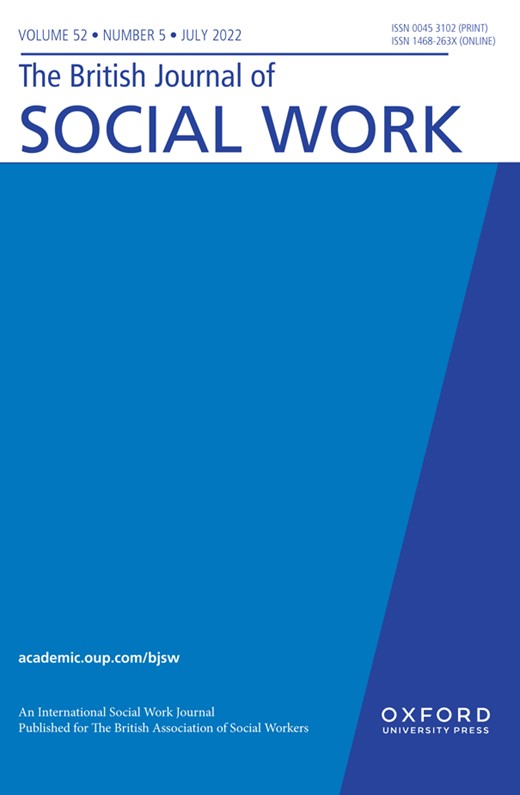-
Views
-
Cite
Cite
Donna Baines, Soft Cops or Social Justice Activists: Social Work’s Relationship to the state in the context of BLM and Neoliberalism, The British Journal of Social Work, Volume 52, Issue 5, July 2022, Pages 2984–3002, https://doi.org/10.1093/bjsw/bcab200
Close - Share Icon Share
Abstract
In the current dual context of Black Lives Matter/defund the police and calls for accountability to those whom social work has harmed as part of the state machinery, this article returns to the debate on state theory. The article explores three state-linked forms of care, coercion and control: stealth coercion/control (in aged-care); population-linked coercion/control, and police and carceral-linked coercion/control. The article analyses what is missing in state theory in a neoliberal world and argues that social work needs models of practice and theory that are themselves a form of resistance and relative autonomy from the state in that they challenge the oppressive state machinery while making demands on the state for equity and fairness. This model permits social work to be humble in the face of lived experience and grounded in the priorities of the community, rather than uncritically legitimising state-linked oppression and securing the ground for profit and accumulation. The article concludes that while this social justice-engaged model will be essential for those moving into the new practice contexts resulting from defunding the police, it is also a model that will serve to strengthen the relevance and integrity of all social work practice.




